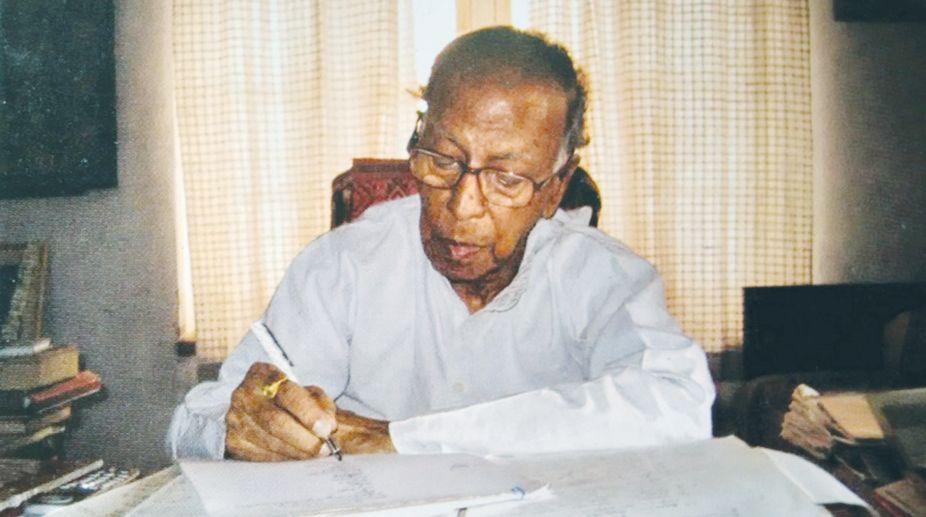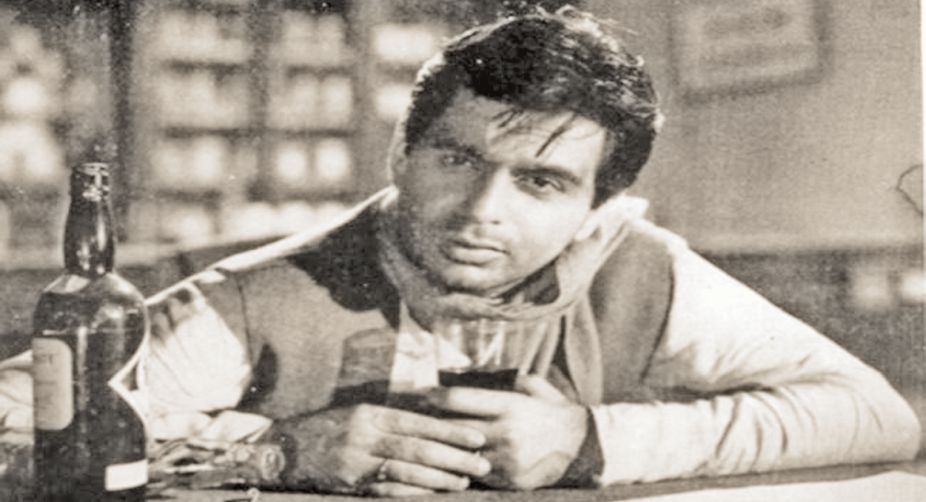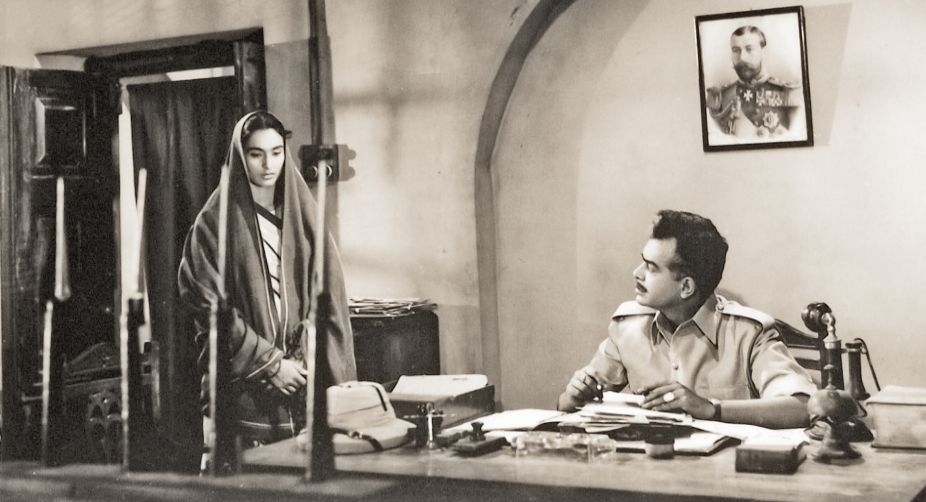Kalyani University unveils fourth volume of Aparajit Satyajit series on Ray
Vice-chancellor of Kalyani University Dr Amlendu Bhuiyan lighted the ceremonial lamp.

Nabendu Ghosh
Bibhuti Bhushan Bandopadhyay is regarded as one of the icons of Bengali fiction but the world outside Bengal may have become acquainted with the writer of Pather Panchali only after Satyajit Ray had turned the literary epic into a cinematic masterpiece.
In the same way, screenplay writers have performed largely in the shadow of directors with whom they have established lasting bonds just as lyricists must be reconciled to the popularity of singers and, to a lesser extent, the music directors.
This is what has caused novelist and screenplay writer Nabendu Ghosh to remain somewhat unnoticed despite having contributed outstanding classics to Indian cinema.
Advertisement
If filmmakers from Satyajit Ray, Raj Kapoor and Guru Dutt had thrived on fruitful collaborations just as Bergman and Kurosawa had done abroad, the story of Bimal Roy’s success in Mumbai wouldn’t have been complete without the screenplays written by Ghosh whom he had taken with him there after he left New Theatres.
It is thus in the fitness of things that the centenary of the writer has become an occasion to recall his best work and the ideas that he had expressed in the screenplays.
This has been done through an hour-long documentary called And They Made Classics that is largely built around interviews with the writer himself. The director, Ratnottama Sengupta, has strung together clippings from films — mostly those directed by Bimal Roy — and recollections collected from a documentary on Ghosh’s mentor made by Joy Bimal Roy. The story reveals the social consciousness and artistic integrity that had helped turn some of Bimal Roy’s films into timeless classics.

Ghosh was a writer of fiction that revolved around the world around him when Bimal Roy was a cameraman in New Theatres. Stories like Dak Diye Jai had stirred the minds of readers but there was not the slightest inclination to be associated with films when he met Bimal Roy.
The cameraman had decided to shift to the movie capital when New Theatres had been hit by socio-economic factors, the World War I and the departure of Pramathesh Barua, Kanan Devi and KL Saigal who had already become stars.
But Ghosh could never have imagined that, after having read his stories, the cameraman who went to make his first film, Maa in Mumbai in 1952, would suggest that the writer consider relocating for a career in films.
Novels and screenplays demanded separate skills but Bimal Roy, according to Ghosh in his interviews, had clearly smelt the potential of a young writer whose work could be effectively adapted to the screen.
Clearly, there was a like-mindedness that had confirmed it was the writer who really mattered at the threshold. It consisted of a string of Saratchandra Chatterjee stories — Devdas, Parineeta and Biraj Bahu — that had led to an exposure of Bengali literature on the Hindi screen that had not been witnessed till then.
To the Saratchandra stories were added Jarasandha’s Bandini and Subodh Ghosh’s Sujata which, through Nabendu Ghosh’s scripts, touched the hearts of audiences that had grown accustomed to seeing stars in colourful surroundings and brought a string of awards, including one from Karlovy Vary.

Who would have thought that Dilip Kumar, at the height of stardom, would agree to enact Devdas, a tragic figure with negative vibes, for audiences that had seen him striding the screen as an all-conquering hero?
The stories by Jarasandha and Subodh Ghosh threw up bigger challenges. Bandini had seen the woman prisoner, played by Nutan, engaged in a tender relationship with the jail doctor played by Dharmendra. The popular expectation was that the two would unite after she had served her jail term. But the logic of the narrative demanded that she reunite with someone else.
In his interview, Nabendu Ghosh recalled that there was an intense debate on whether the script should strike a more realistic note, however uncomfortable that might be. The script writer was inclined to follow the logical path and his opinion finally prevailed. That could be one of the reasons why the treatment of untouchability in Sujata, based on the Subodh Ghosh novel, had a timeless resonance.
What also stood out in the film was the liberal outlook of the writer who not only insisted on preserving the classical flavour of Bengali fiction in Hindi films — perhaps because he was a novelist himself — but allowed students of the Pune film and television institute, where he was on the direction faculty for many years, the freedom they needed to express themselves.
Between the traditional virtues that Ghosh cherished and reflected in his work and the fresh winds of artistic expression blowing into the campus, there was a meeting point that he had acknowledged.
That is perhaps why his long innings as a teacher was as remarkable as his contribution as a writer who was associated with Hrishikesh Mukherjee, Satyen Bose and Ajoy Kar.
The only regret may have been that he had to wait till the fag end of his career to direct his first film, Trisghagni, in 1989. That it fetched him a national award suggested that he may have missed a few more opportunities to go behind the camera.
Advertisement